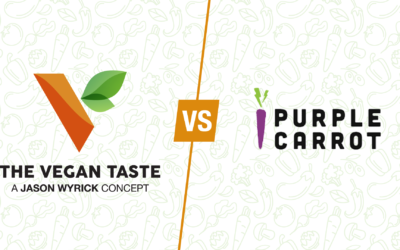If you’re like most people, you’ve tried a variety of different diets. Perhaps you’ve been on a quest to lose weight. Or maybe you’re looking to weed out foods that cause inflammation or gastrointestinal issues. For whatever reason, most of us fall prey to fad diets from time to time. But when it comes to the vegan diet, it’s so much more than just a fad.
Some of the Current Fad Diets
If you search “diet” on Google, you’ll get nearly 800 million results. US News reports that the top three diets in 2021 overall are Mediterranean, DASH, and Flexitarian. A vegan diet hits two of their lists: weight loss and diabetes diets. Ironically, the vegan diet does not land at the top of the plant-based diets (although vegetarian does).
Mediterranean Diet
While there’s not a universally accepted definition of the Mediterranean diet (since there are a number of countries that border the Mediterranean Sea), there are some parameters on which most agree. The diet generally includes ample amounts of fruits, vegetables, whole grains, and legumes; olive oil as a fat source; and minimal to moderate dairy products, poultry, and fish.
The American Heart Association recommends the Mediterranean diet because it focuses on whole foods, limits fats and sugars, and includes lean meats. This eating style supports a healthy heart by reducing potential for obesity and diabetes.
DASH Diet
DASH is an acronym for dietary approaches to stop hypertension and is lower in sodium and saturated fats yet higher in potassium, calcium, magnesium, fiber, and protein. This diet centers around grains, vegetables, fruits, low-fat and fat-free dairy products, lean meats, legumes, and healthy oils.
According to the Mayo Clinic, closely following the DASH diet can lead to lower blood pressure and cholesterol, two major contributors to heart disease and stroke.
Flexitarian Diet
Flexitarians eat a mostly plant-based diet but don’t give up meat entirely; they are “flexible” about it. While there are no strict guidelines to the approach, WebMD suggests that there are varying levels. Beginners may have two meatless days per week; advanced dieters skip meat three to four days a week; and pros eat a plant-based diet five or more days each week.
Obviously, the flexitarian approach is on the way to vegetarianism and the vegan diet.
Exploring a Vegan Diet as an Alternative to Fads
Who knows what diets will top the charts in the future? In the past, we’ve heard about keto, Atkins, South Beach, Weight Watchers, Zone, paleo, Volumetrics, raw food, Nutrisystem, and macrobiotic. What’s important to remember is that a diet should be sustainable; it should be a lifestyle. Typically, though, fads are not; they are “here today, gone tomorrow” approaches that meet needs for a bit and then fail to maintain interest.
This is why a vegan diet is a better choice and certainly not a fad. It ticks the boxes of being sustainable and a lifestyle choice. Plus, plant-based eaters enjoy many of the benefits highlighted in the Mediterranean, DASH, and flexitarian diets, most without even having to think about them.
What happens if you can’t cook or don’t like to grocery shop? Does that mean you can’t make a healthy lifestyle change? No, because Vegan Taste has an option for you: ready-to-eat meals. We provide healthy, delicious vegan meals that make it easier to make the switch.
Skip the fad diets and unhealthy options and add some delicious options to your weekly routine. See what Chef Jason is cooking this week and get your order in!




